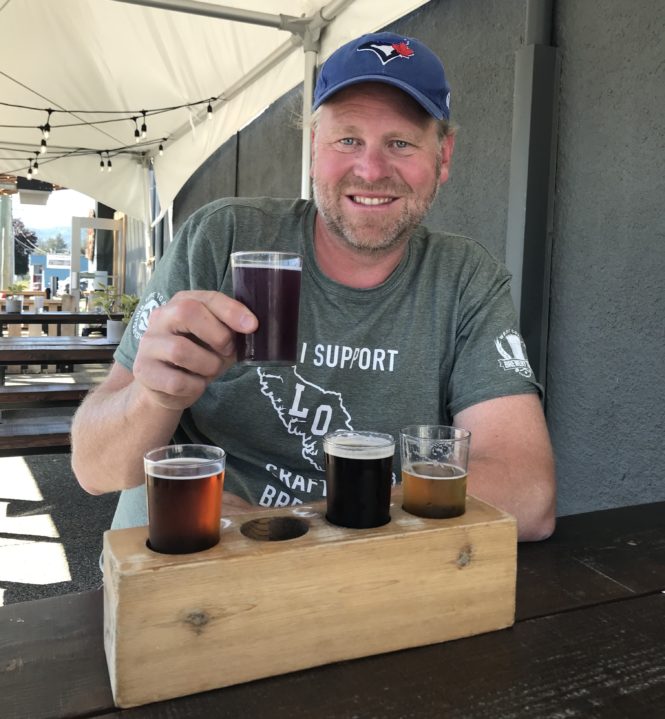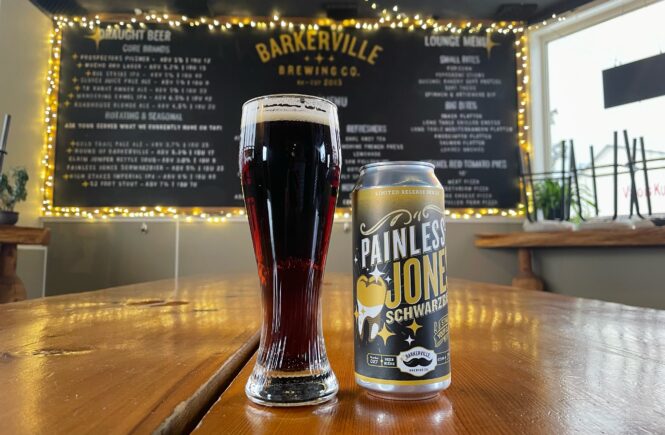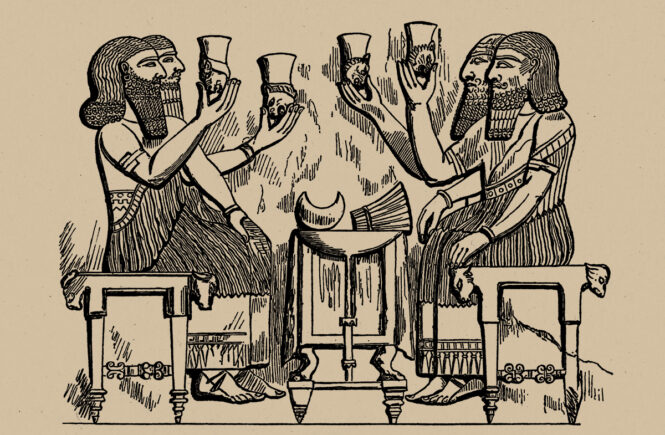New Book by Noëlle Phillips Explores Vancouver’s Craft Beer History

Regular Growler contributor Noëlle Phillips has been hard at work for several years, researching and writing about Vancouver’s relationship with beer, dating back to the city’s earliest origins. The result of her diligent work is her new book, Brewmasters and Brewery Creek: A History of Craft Beer in Vancouver, which comes out on October 15, 2024 from Touchwood Editions.
Phillips teaches in the English Department at Douglas College and is the author of another previous scholarly work, Craft Beer Culture and Modern Medievalism. She is also the co-editor of Beer and Brewing in Medieval Culture and Contemporary Medievalism.
This informative and entertaining book connects the early pioneer brewers who gave Brewery Creek its name with the contemporary entrepreneurs who helped make Vancouver the craft beer destination it is today. It’s a must-read for any BC craft beer fan, as well as anyone interested in Vancouver’s early history.
Book launches will be held in White Rock, Vancouver and Sidney later this month (details listed below), and Noëlle will also be selling the book at the upcoming BC Craft Beer Conference in New Westminster on October 17 & 18.

Why did you want to write this book? What prompted your interest in the history of craft beer in Vancouver?
As a medievalist and as a beer lover, I’ve had a longstanding interest in how the modern marketing of craft beer continually returns to medieval imagery and concepts. My first book explored the medieval history of beer together with the modern use of medieval concepts in beer marketing. In analyzing the use of history in modern marketing, I developed a deep interest in history that is a bit more recent and a bit more local than the medieval European history that has been my wheelhouse. I realized that Vancouver has a rich history of independent brewing, both in the craft beer revolution of the 1980s and in the birth of the industry a century earlier — before corporate monopolies took over. I see early independent brewing in Vancouver as one of the drivers of the city’s growth and, in some ways, the first example of neolocalism and the 100-mile diet.
Where did your research take you? Did you have any particularly interesting/exciting discoveries along the way?
It was hard to keep my focus narrow enough for a single book. I had initially planned to write about the history of brewing in the entire lower mainland — maybe even the mainland and the Island! However, I discovered that each community has its own stories that deserve full attention. This is especially true in the late 19th century, when communities really were their own little bubbles. So I ended up just focusing on Vancouver. And there is plenty of material! I found that the accounts of political and social intrigues — often just hinted at in the public records — were fascinating. Some of the personal tensions and lawbreaking (or law-stretching) were pretty entertaining to read about. I also found myself very lucky to make contact with relatives of some of Vancouver’s earliest brewers and be granted access to old letters and photos that really humanized these men. I particularly liked one story about famed Vancouver Brewery owner Charles Doering, whose wife wrote home telling her family how he continually lost money at poker on vacation because he didn’t want to hurt the feelings of the man he was playing with. I only wish I could have found such personal records from the family of Columbia Brewery’s Mary Mueller (later Mary Brownlee), who beat a customer with a horsewhip in a fit of rage. I’m still trying to track her descendants down!

If you could go back in time, which early Vancouver brewery would you like to visit? Which beer would you want to taste?
That’s a hard one….I think either Red Cross Brewery’s Spring Bock (a beer they released each year with great success) or Columbia Brewery’s Culmbacher lager, a beer style that is nearly extinct now but back in the 1890s was the way to show your German cred. I think Columbia was the only one that brewed it. Their brewmaster was proud of his German heritage — he was well known for his “joddling” (a type of yodeling) at public events.
Is there a common thread you can draw from the early days of brewing in Vancouver to today’s scene?
I think the importance of independence is a major point of connection. Keeping breweries independent is crucial if we are to maintain and nurture community-oriented and successful breweries. There are other elements that are important, of course, but this is one that sticks with me. Once the breweries of 19th century Vancouver began the big consolidations in the 1910s, the industry’s health took a dip — and this wasn’t just because of prohibition looming. Corporate consolidations inevitably result in less choice for consumers, which isn’t great for the industry.
The consolidations can help a brewery survive financially, of course. The only breweries that were left after prohibition ended were the big corporate ones — no more independent ownership. People back then thought that this was the way to save brewing, but was it? It’s when we returned to independent brewing in the 1980s after years of Big Beer strikes that we saw a renewed interest in what beer could be. I hope my book honours the men and women who cut through the red tape, bureaucracy, lack of confidence, misogyny, and general resistance to make independent brewing successful once again in Vancouver.

Is there anything else you want to highlight?
Right now the BC craft beer industry is going through some hard times — and they feel even harder in contrast to the euphoric rise of 2012-2019. While I definitely don’t wish to minimize the challenges and, frankly, pain experienced by so many in the industry right now, I’d like to think my research helps to contextualize this difficult moment. Vancouver craft beer has experienced glorious upswells and painful drops for 140 years, and yet Vancouver is still known as one of the best beer communities in North America. We learn from our mistakes and our difficulties and we get better. We innovate, improve, and show our white-knuckled, tenacious resilience in the face of it all. I’ve seen this in the brewers and owners I’ve interviewed, as well as in the archival records of the city’s pioneering breweries. Vancouver brewers and beer lovers shouldn’t lose hope in these moments; we will pull out of it, as we’ve done before, and we’ll be even better on the other side.
My book was written to honour the hard work and the spirit of the brewmasters and brewery owners who have created this amazing industry for all of us to enjoy.
Attend one of Noëlle’s book launches to meet her in person and pick up a copy of her excellent book:




